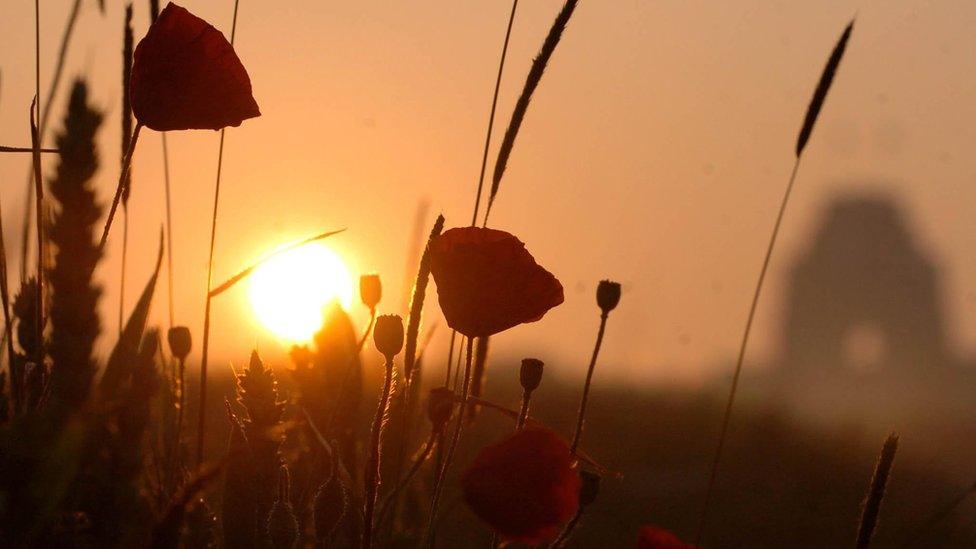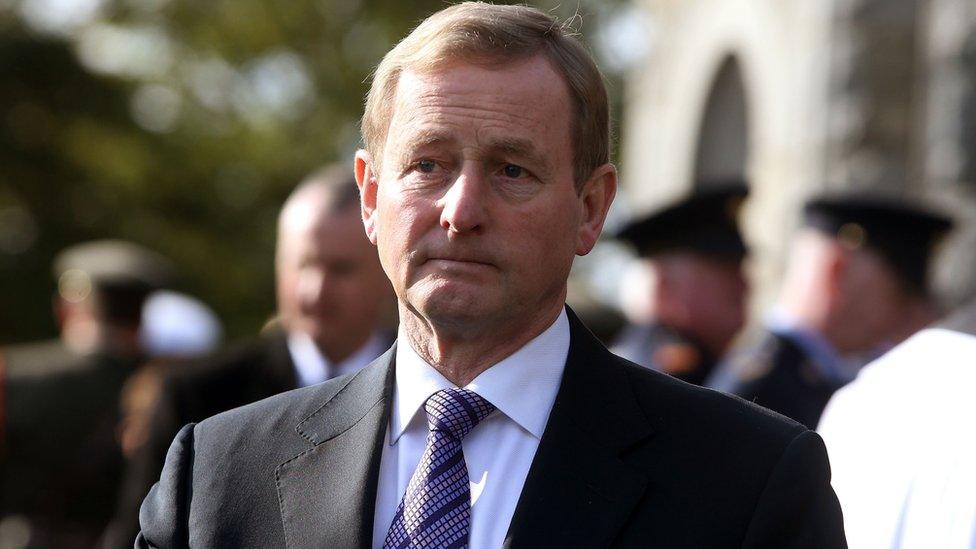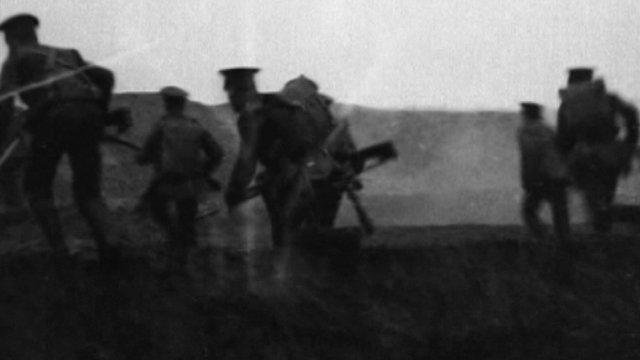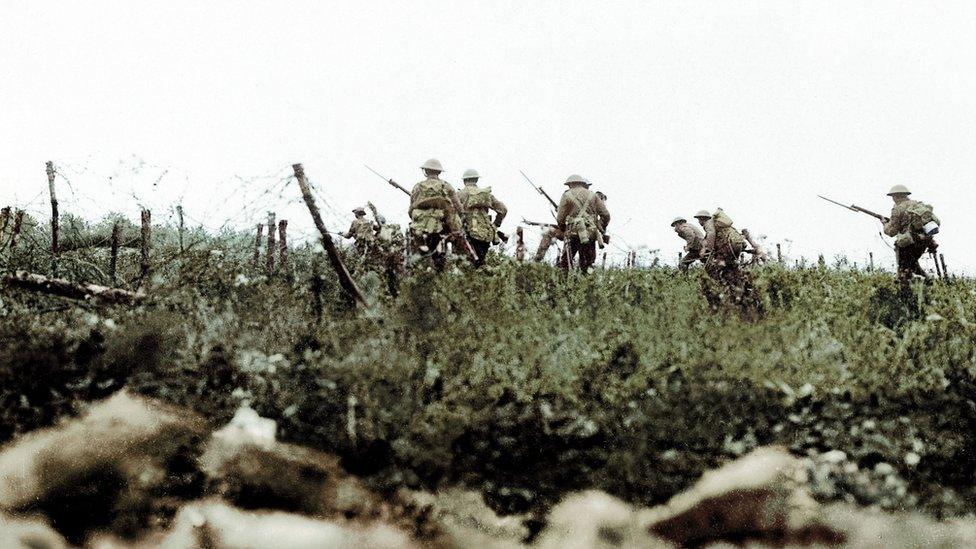Somme centenary: Irish government plans events to mark WW1 battle
- Published

Soldiers from the 36th Ulster Division and the 16th Irish Division fought at the Somme
Plans to mark the centenary of the Battle of the Somme, with a series of events next year, have been announced by the Irish government.
The Somme was one of the bloodiest battles of World War One with more than one million casualties over 141 days.
Among the events will be two memorial ceremonies in County Dublin, while sets of commemorative stamps will be issued.
Thousands of soldiers from the 36th Ulster Division and the 16th Irish Division fought in the battle.
Next year is arguably the biggest year in the decade of centenaries, lasting from 2012 until 2022, in Northern Ireland and the Republic of Ireland.
As well as the Battle of the Somme, the centenary of the 1916 Easter Rising is also set to be marked.
The Easter Rising was a republican rebellion which lasted from Monday 24 April (Easter Monday) to 30 April 1916.
The aim was to end British rule in Ireland.
Despite its military failure, the Easter Rising is viewed by many as being a significant stepping-stone in the eventual creation of the Republic of Ireland.

Enda Kenny said the loss of lives in the Battle of the Somme "has transcended generations"
The Irish events to mark the Battle of the Somme will include:
A state-led commemoration on 9 July at the Irish National War Memorial Park in Islandbridge.
A military ceremony at the same venue on 1 July, honouring the Irish regiments that fought at the Somme and WW1.
A poetry project led by Irish poet Dermot Bolger, exploring stories of Irishmen at the Somme and the Easter Rising.
A co-production of Frank McGuinness's play Observe the Sons of Ulster Marching Towards The Somme, presented close to the scene of the battle in France by Dublin's Abbey Theatre.
Enda Kenny, the Irish prime minister, said 2016 was a "very important year for Ireland" as it marked events that "shaped the history of our island over the last 100 years".
"We remember the huge losses experienced by the 36th Ulster Division and the 16th Irish Division and the indescribable impact that this had on the island of Ireland - a loss that has transcended generations," he said.
Irish Foreign Affairs Minister Charlie Flanagan said the Republic of Ireland would "join with our neighbours in Northern Ireland and across Europe in remembering the huge losses of lives" in the battle.
He added: "[The] commemorative events will help build an understanding of the events of 1916 in all their complexity and diversity, and explore how they have resonated through the years since."
- Published15 October 2015

- Published28 September 2015
